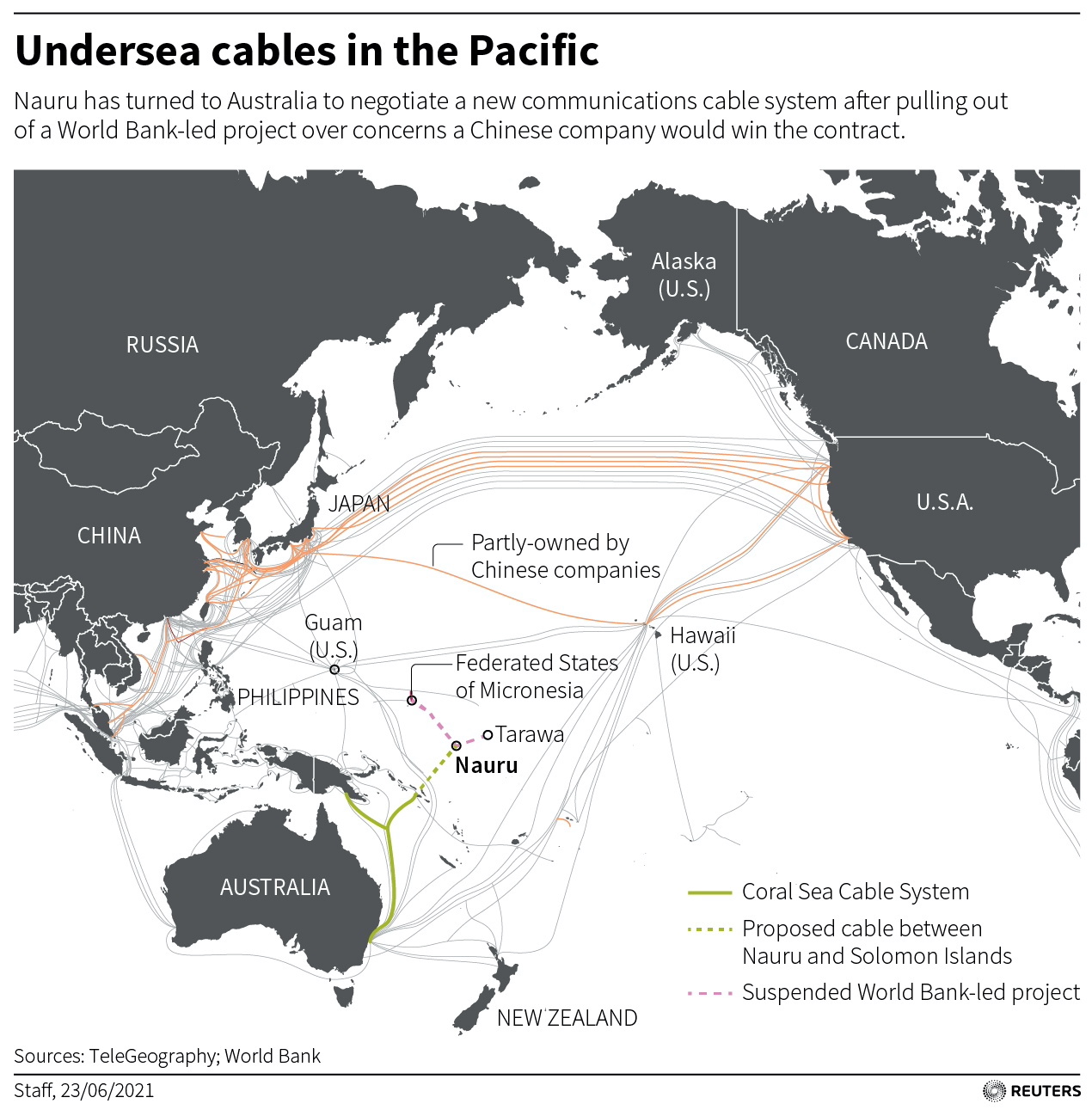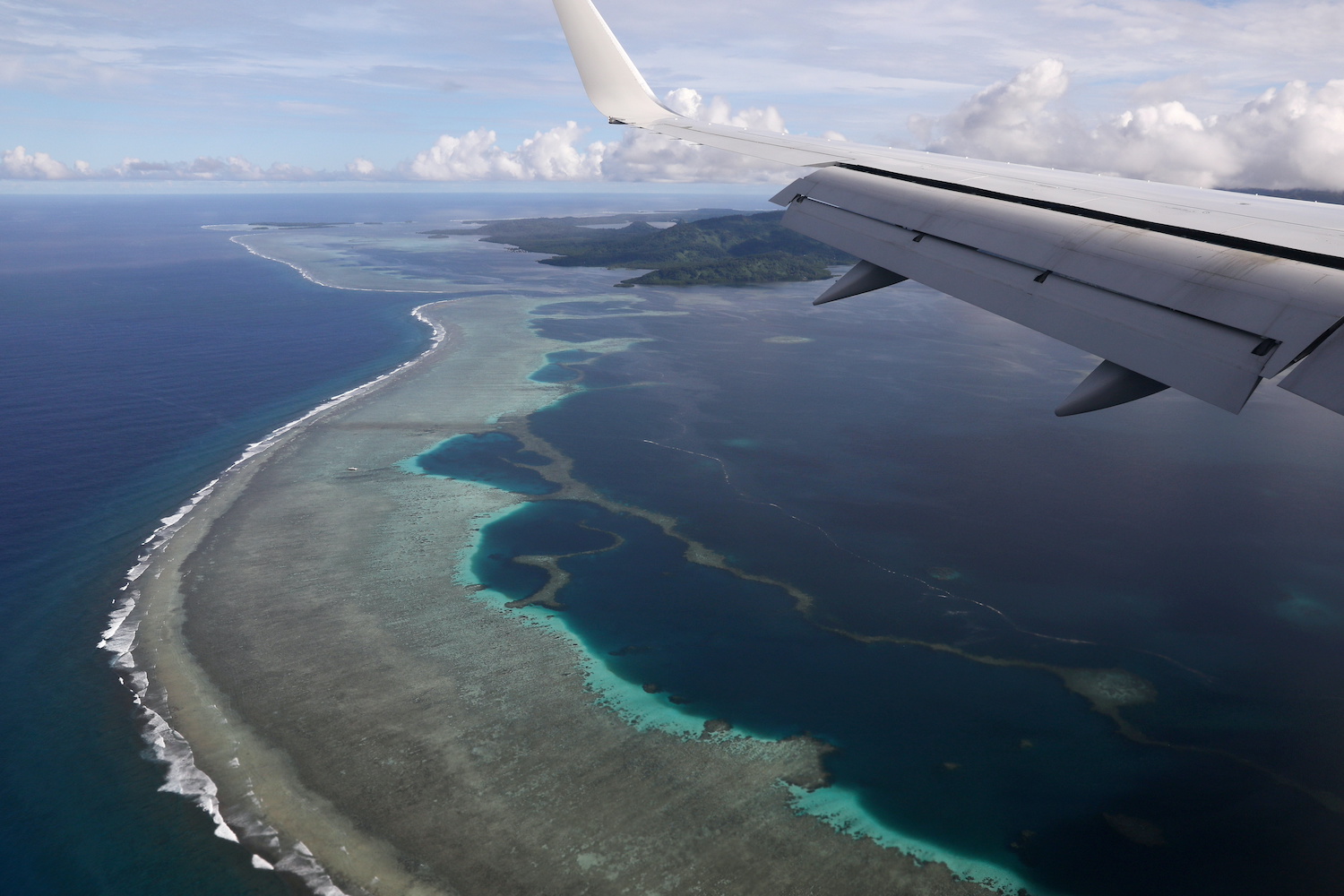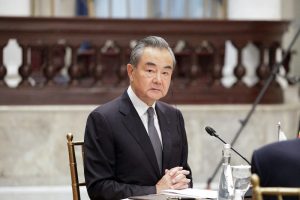The Federated States of Micronesia will tap a US funding facility to construct a Pacific undersea communications cable, after rejecting a Chinese company-led proposal that was deemed a security threat by US officials, sources have revealed.
The United States has taken great interest in several plans in recent years to lay optic fibre cables across the Pacific, projects that would bring vastly improved communications to island nations.
The undersea cables have far greater data capacity than satellites, leading Washington to raise concerns that the involvement of Chinese firms would compromise regional security. Beijing has consistently denied any intent to use cable infrastructure for spying.
Two sources with knowledge of the plans said the Micronesian states (known collectively as FSM) would use US funds to construct a line between two of its four states, Kosrae to Pohnpei, replicating part of a route proposed under a previous $72.6 million project backed by the World Bank and Asian Development Bank.
That project, which also encompassed Nauru and Kiribati, was scuppered after Washington raised concerns the contract would be awarded to Huawei Marine, now called HMN Technologies and majority owned by Shanghai-listed Hengtong Optic-Electric Co Ltd.
One source said that Micronesia would draw around $14 million from the American Rescue Plan, a US facility created by President Joe Biden to distribute funds both at home and abroad to combat the health and economic impacts of the Covid-19 pandemic.
Micronesia said it was committed to providing fibre connectivity to the State of Kosrae, and onward connectivity to Kiribati and Nauru. It did not respond directly to questions about US funding.
The US State Department declined to comment.
The United States and FSM have a long geopolitical relationship, enshrined in the Compact of Free Association, a decades-old agreement between the United States and its former Pacific trust territories. Under that agreement, Washington is responsible for the island nations’ defence.
The second source said the US-funded cable would likely connect to the Hantru-1 undersea cable, a line primarily used by the US government that connects to the US Pacific territory of Guam.
Both sources spoke on condition of anonymity as they were not authorised to speak publicly.
The World Bank said in a statement it was working with FSM and Kiribati to map out their next steps after the original tender for the larger project concluded with no contract awarded.

Pacific Politics
Undersea cables represent one of the newest and most sensitive fronts in the rivalry between China and the US in the strategic waters of the Pacific.
While Micronesia has close ties to the United States, it also has long-standing diplomatic and trade relations with China.
Prominent US lawmakers have warned that Chinese companies could undermine competitive tenders by offering state-subsidised bids.
The US Commerce Department publicly lists Huawei Marine on its so-called ‘Entity List’ – known as a blacklist – which restricts the sale of US goods and technology to the company. The Department said that Huawei’s new owner, HMN Tech, would also be captured under these restrictions.
China has strongly refuted the allegations. China‘s Foreign Ministry said in a statement to Reuters that Chinese companies had a good record in cybersecurity.
“The so-called security threat [alleged] by the US is totally groundless, and has ulterior motives,” the statement said. “Who the ‘hacker empire’ really is – engaging in spying and stealing secrets – is plain to the world.”
Australia, a strong regional ally to the United States, has ramped up its presence in the Pacific through the creation of a A$2 billion ($1.48 billion) infrastructure financing facility that island nations can potentially access for cable projects.
Nauru has been negotiating plans to tap into the Australian-backed Coral Sea Cable system, via Solomon Islands, sources told Reuters in June.
• Reuters and Jim Pollard
ALSO SEE:
India joins global undersea cable race with Reliance Jio’s help
Huawei submarine cable unit changes name, identity
Google, Facebook told to axe plan for undersea cable to Hong Kong
























